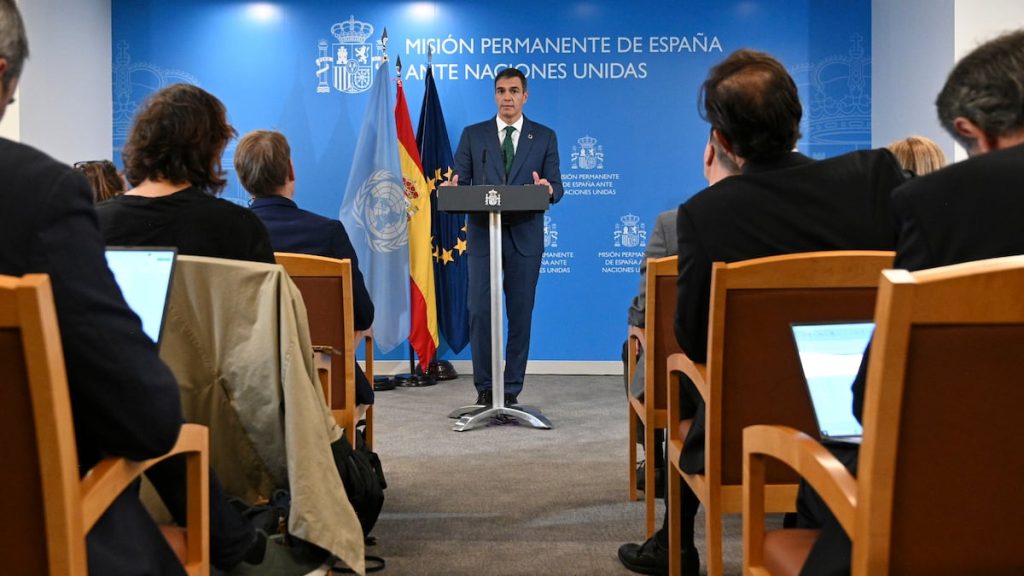The Spanish government is facing a serious diplomatic crisis with Mexico, as they have decided not to send any representatives to Claudia Sheinbaum’s inauguration ceremony as a protest against the exclusion of King Felipe VI from the event. President Pedro Sánchez expressed his disappointment at the situation, questioning the motives behind Mexico’s decision and suggesting that it may be a result of internal political reasons, particularly involving President Andrés Manuel López Obrador. Despite calls for Spain to apologize or conduct a historical review of the American conquest, Sánchez highlighted Mexico’s support for Spanish exiles during the civil war as a positive gesture.
Sánchez avoided escalating the diplomatic conflict and maintained a respectful tone towards Mexico, acknowledging the deep sense of regret and frustration over the situation. The government finds it unacceptable that the Spanish head of state was excluded from an event of such importance, which has led to strained relations between the two countries. This crisis adds to Spain’s existing tensions with other countries, such as Argentina and Venezuela, posing a challenge for Madrid to navigate these complex diplomatic issues. The Minister of Foreign Affairs, Jose Manuel Albares, is set to address the Congress to provide further information on Spain’s response to the exclusion of the Spanish delegation from the Mexican inauguration.
The decision to withdraw the deficit path for negotiations with Junts in order to secure an agreement on the Budget has implications for the timing of the Budget approval process. Sánchez hinted that the Budget approval may be delayed until next year due to the upcoming congresses of Junts and ERC, involving a new extension of the current Budget if necessary. Despite potential political challenges, the government remains committed to presenting the Budget and emphasizes the need for a stable fiscal path that benefits all regions. Sánchez puts pressure on the opposition party, the PP, to support the deficit path that would provide substantial financial benefits to the autonomous regions.
The President’s approach to the negotiations with Junts has evolved, as he now recognizes the importance of reaching an agreement to move forward with the Budget process. Sánchez has shown willingness to engage in discussions and seek consensus with all parliamentary groups to ensure the approval of the Budget. By withdrawing the deficit path and focusing on building alliances, the government aims to secure the necessary support to pass the Budget and advance its political agenda. The ongoing negotiations and strategic decision-making underscore the government’s determination to address key economic and fiscal challenges facing the country.
In conclusion, the diplomatic crisis between Spain and Mexico highlights the complexities of international relations and the need for diplomacy to navigate sensitive issues. The Spanish government’s response to the exclusion of the Spanish delegation at Claudia Sheinbaum’s inauguration reflects a commitment to upholding diplomatic norms and protecting the interests of the country. By seeking dialogue and promoting dialogue with key stakeholders, Spain aims to resolve conflicts and build constructive relationships with its international partners. The government’s handling of the situation with Mexico and its approach to budget negotiations demonstrate a multifaceted strategy to address both domestic and international challenges.















